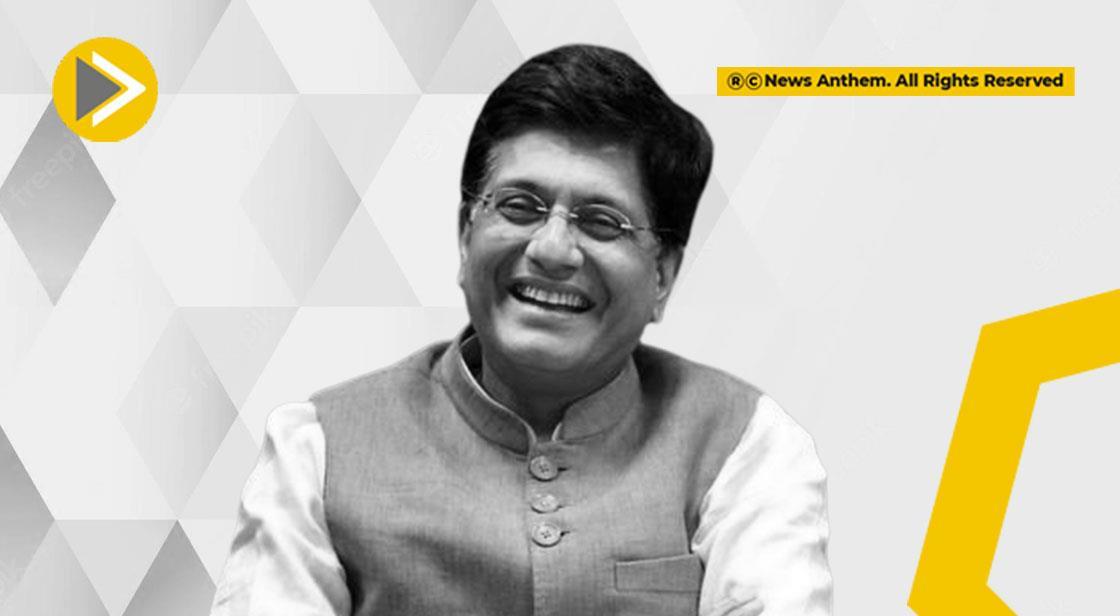India’s IT MSMEs to Drive $450 Billion Services Export Target: Piyush Goyal

News Synopsis
Recognizing the immense potential of India’s Micro, Small, and Medium Enterprises (MSMEs) in the Information Technology (IT) sector, Union Minister of Commerce & Industry, Piyush Goyal, emphasized their significant role in propelling the country toward its ambitious $450 billion services export target.
MSMEs Driving India’s Services Export Growth
Speaking at the Global Confluence 2025, an event organized by Nasscom in New Delhi, Goyal stressed the importance of MSMEs in various industries, including IT, tourism, business accounting, and financial services. He underlined their contributions to services exports and job creation, according to an official statement from the Ministry of Commerce & Industry.
Goyal expressed confidence that the IT and IT-enabled services (ITES) sector would serve as a catalyst in reaching the $450 billion services export milestone in the upcoming financial year. He pointed out that India’s services exports touched approximately $340 billion last year, with IT and ITES alone contributing nearly $200 billion.
For the current fiscal year, the government expects services exports to grow to around $380 billion to $385 billion, further bolstering India's position as a global technology hub.
Role of Technology and Innovation in IT Sector Growth
Union Minister of Commerce & Industry, Piyush Goyal acknowledged the Indian IT sector’s commitment to innovation, adaptability, and digital transformation. He particularly highlighted emerging technologies such as:
-
Quantum computing
-
Artificial intelligence (AI)
-
Machine learning (ML)
These cutting-edge advancements have reinforced India’s IT sector as a global leader, ensuring continuous learning, upskilling, and reskilling. The National Association of Software and Service Companies (Nasscom) was commended for fostering a competitive and future-ready industry.
Attracting Global Capability Centres (GCCs) to India
The Minister also stressed the need to attract more Global Capability Centres (GCCs) to India. With a vast and highly skilled workforce, India has the potential to become the preferred destination for global businesses rather than merely exporting its talent. He noted that by encouraging multinational corporations to establish operations in India, the country could significantly boost:
-
Foreign exchange earnings
-
Domestic job creation
-
Economic growth
Impact on India's Middle Class and Infrastructure Development
Goyal highlighted that the rise of India’s middle class and their increasing consumption patterns would create new opportunities across commercial real estate, housing, and infrastructure. This growing demand would establish a virtuous cycle of economic expansion, with the thriving services sector acting as a key pillar in strengthening the broader Indian economy.
Strengthening India’s Global Partnerships Through FTAs
The Union Minister reaffirmed the government’s commitment to expanding global partnerships through:
-
Free Trade Agreements (FTAs)
-
Bilateral trade engagements
He noted that global markets are increasingly eager for Indian IT services and solutions, offering significant opportunities for export expansion. The proactive efforts in strengthening trade relations and easing market access would be instrumental in driving India's economic aspirations.
India’s Vision for ‘Viksit Bharat’ in Amrit Kaal
Goyal expressed optimism about the IT sector’s role in shaping India’s economic future, reinforcing its position as a key driver in the journey toward ‘Viksit Bharat’ (Developed India) during Amrit Kaal. He emphasized that MSMEs and IT-enabled businesses will continue to play a transformative role, ensuring sustained growth, employment generation, and technological excellence in the years ahead.
Conclusion
India’s MSMEs in the IT sector are poised to play a transformative role in achieving the $450 billion services export target. With IT and ITES contributing nearly $200 billion, the sector’s rapid expansion is fueling economic growth, job creation, and technological advancements. As India continues to embrace AI, machine learning, and quantum computing, the push for innovation and reskilling will ensure the industry remains competitive on the global stage.
Additionally, attracting Global Capability Centres (GCCs) will boost foreign exchange earnings and domestic employment, reinforcing India’s standing as a tech-driven economic powerhouse. The government’s proactive trade policies, Free Trade Agreements (FTAs), and global partnerships further enhance export opportunities.
With a rising middle class and increasing demand for infrastructure, India’s IT and MSME sectors will continue to drive economic expansion. Under Amrit Kaal, these efforts will contribute significantly to India’s vision of becoming a developed ‘Viksit Bharat’ in the coming years.
You May Like









